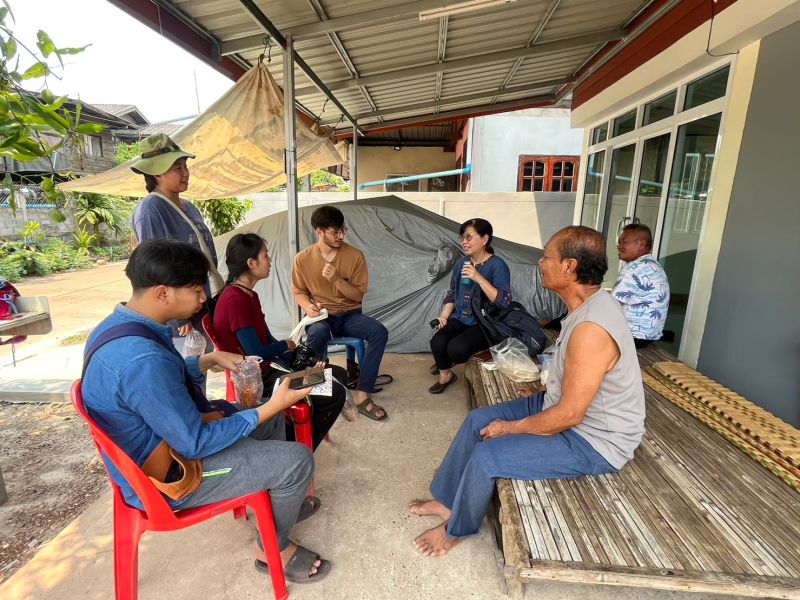Household Survey
The MCW Household Survey Project was conducted in sites affected by irrigation construction and land grabbing in Cambodia and Thailand. The survey seeks to gather information on local livelihoods, debt, social networks, food security, migration, as well as household vulnerability, adaptation, and resilience to climate change and upstream dam construction. The survey can provide baseline data regarding the links between ecological and livelihood changes in relation to hydropower development. For data collection and management, we employed Open Data Kit (ODK), an android-based mobile data collection platform.
Data produced through collaborative research with The Wonders of the Mekong, a multi-disciplinary project at the University of Nevada-Reno, allow for an unprecedented interdisciplinary analysis of relationships between local livelihoods and fishery biodiversity.
Cambodia
Over 700 household surveys were collected in 14 villages around the Tonle Sap Lake in three provinces: six villages in Boribo District of Kampong Chhnang, four villages in Krokor District of Pursat and four villages in Stong District of Kampong Thum. Key institutions working on this project include the Royal University of Phnom Penh, the Cambodian Institute for Cooperation and Peace, and the Anicca Foundation. The following pictures were taken during their field survey by a survey team in Cambodia.
Data from the survey affirm villagers’ stories and expertise. Villagers who are living in the selected communities have experienced dramatic ecosystem transformations over decades due to hydropower, irrigation and land development projects in their area and across the Mekong region. These changes have impacted their livelihoods and food security - for example, unpredictable fluctuation of the seasonal floods, loss of farmland, fishery depletion, and forced relocation.
Access these Data

|
Data collection at Chhnuk Tru village, Kampong Chhnang Province on April 29, 2022. |
Thailand
The survey in Thailand covers more than 430 households that are home to more than 1600 individuals in North and Northeast Thailand. The sample includes four communities in Chiang Rai province in the Kok and Ing River tributary basins, and four communities covering Bueng Khan, Sakhon Nakorn, and Nakhon Phanom in the Songkhram River tributary basin. The Regional Center for Sustainable Development at Chiang Mai University, Chiang Khong Conservation Group, and Mae Fah Luang University are the main collaborators in this initiative.
Access these Data

Dr. Malee Sittikreangkrai (CMU) and student survey team meet with community co-researchers to prepare for key informant interviews, which supplement survey data from Tha Sa Ard village, Bueng Kan Province.